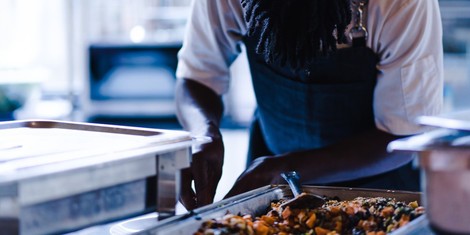Your podcast discovery platform
Curious minds select the most fascinating podcasts from around the world. Discover hand-piqd audio recommendations on your favorite topics.

piqer for: Global finds
Ciku Kimeria is a Kenyan author "Of goats and poisoned oranges" - (https://www.amazon.com/goats-poisoned-oranges-Ciku-Kimeria-ebook/dp/B00HBBWPI6), development consultant, adventurer and travel blogger (www.thekenyanexplorer.com). She writes both fiction and non-fiction focusing on African stories that need telling. She has worked on diverse pieces for various international and local publications including Quartz, Ozy, The East African etc. She has travelled to 45 countries – 16 of them in Africa. 153 countries to go and 63 territories!
"Of goats and poisoned oranges" has been extremely well received in Kenya and beyond. It tells the story of a Kenyan middle aged power couple and their complicated marriage. The novel explores issues of greed, revenge, betrayal and murder. It runs from the 1960s to 2013. It has been described as “Wicked, funny, poignant, wacky, human, a big ball of fun and danger”, “A unique and captivating book”, “Fun and intriguing”, “Impossible to put down once you start reading.”
She recently moved to Dakar, Senegal from Kenya to work on her second novel. She also works at as the Africa Communication Manager at a leading global strategy consulting firm.
She holds a B.S. in Management Science from MIT with minors in Urban Planning and International development studies.
Discover 50 African Foods You Should Try
I remember the first time I discovered (while in the US) that chapatis are from India. Someone had asked me "So what type of food do you eat in Kenya?", and I had proudly gone on listing meals that I thought were 100% Kenyan and unique. Of course I started with Ugali (maize meal) and Sukuma wiki (kale.) Long before kale had its day in the sun in the West, Kenyans have been eating it almost daily. The name sukuma wiki is a Swahili phrase meaning "push the week." For the average citizen, meat is a luxury that might be eaten only once or twice a week, but kale is always there to help people push through the week given its relatively low cost. When I mentioned, "We eat chapatis in Kenya – they are similar to pancakes but saltier, thicker and made from kneaded dough." and my interlocutor responded "Oh yes. I know chapatis. They are Indian", I was taken aback – I had only come to learn in my late teens that what I always thought was a uniquely Kenyan dish was actually not really ours.
Food is highly complex. It tells a story of changing cultures, diets, aspirations, migration and the introduction of new foods and spices, shortages of certain products and adaptation of meals to make use of what is available etc. Among my tribe in Kenya, the Kikuyu, meals are very spartan. Given that we were mostly farmers, food was always about getting enough nourishment, then getting back to the farm. We boiled almost everything together – beans, potatoes, greens, maize. The only flavour we used was a dash of salt. In my new adopted country – Senegal – food is extremely important. People know the name of the first person who ever made certain meals, there are very precise guidelines for how to cook certain meals, how to serve them, where people should sit in relation to the different parts of the meal, how long to sit by the shared bowl etc.
Hopefully this list inspires the reader to discover my lovely continent and her culinary delights.
